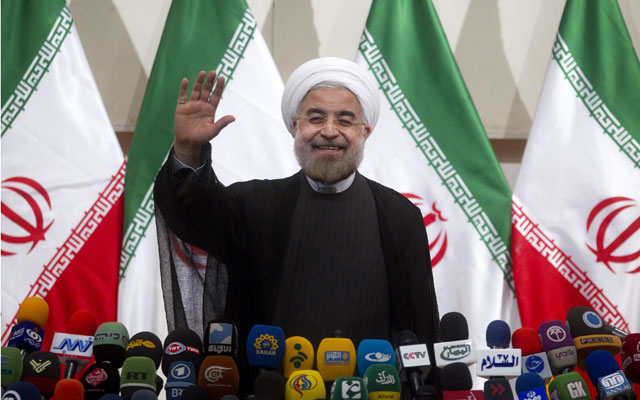The Obama Administration, which signed an agreement with Iran on Saturday on how to implement its November 24 interim nuclear deal, is now seeking to suppress bipartisan congressional efforts to strengthen sanctions against Iran if it violates the interim agreement.
Although the text of the most recent agreement has not been publicly released, there is mounting congressional criticism over the flawed interim deal, which relaxes sanctions pressure on Iran over the next six months in return for easily reversible Iranian pledges, some of which Iran has given before but subsequently reneged on.
The nuclear deal requires Iran to curb some, but not all, of its nuclear activities in return for what the Administration initially claimed was about $7 billion in sanctions relief over six months. Administration officials subsequently admitted to their Israeli counterparts that the sanctions relief was closer to $20 billion over six months.
The problem is that the Administration’s ill-considered easing of sanctions will make it more difficult to reach an acceptable final agreement. To force Tehran to make the necessary deeper concessions in a final deal, more pressure is required.
Ed Royce (R–CA), the chairman of the House Foreign Affairs Committee, hit the nail on the head when he warned:
I’m concerned that this agreement takes us down that path where sanctions pressure is relieved, but Iran maintains its ability to produce a nuclear weapon.… Given these stakes, it’s regrettable that the President does not want to work with Congress to bolster his negotiating hand with additional sanctions, which would go into effect should Iran fail to meet its commitments.
Such sanctions would be an “insurance policy,” in the words of Senate Foreign Relations Committee chairman Robert Menendez (D–NJ), that would increase the Administration’s bargaining leverage by raising the potential costs Tehran would have to pay if it fails to resolve the nuclear issue through diplomacy.
Instead, the White House has bowed to Iranian threats to withdraw from the talks in the event that Congress passes more sanctions and has escalated pressure on congressional advocates of sanctions rather than on Iran.
Meanwhile, there is growing concern that the Administration’s relaxation of U.S. sanctions is eroding the strength of international sanctions against Iran. Russia is reportedly negotiating a $1.5 billion per month oil-for-goods swap that would further undermine sanctions.
Iran’s oil exports have also surged after the signing of the November interim agreement, rising from 789,292 barrels per day in November to 1,059,605 per day in December.
If current trends continue, Iran not only will escape the full brunt of sanctions but will retain the infrastructure to build nuclear weapons at its own convenience.
Congress has an opportunity to put sanctions in place that will force Iran and its potential trade partners to pay a heavy price if Iran continues down its nuclear path.
See also: U.S. Should Maximize Pressure on Iran at Nuclear Talks.
RELATED POSTS:



























